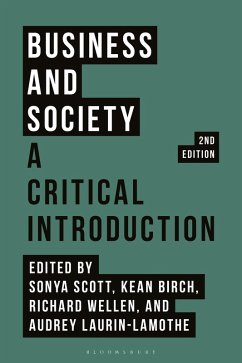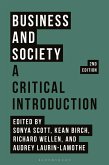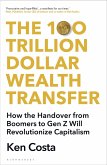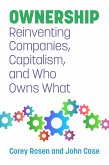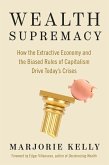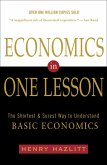Business and Society (eBook, ePUB)
A Critical Introduction
Redaktion: Scott, Sonya; Laurin-Lamothe, Audrey; Wellen, Richard; Birch, Kean
20,95 €
20,95 €
inkl. MwSt.
Sofort per Download lieferbar

10 °P sammeln
20,95 €
Als Download kaufen

20,95 €
inkl. MwSt.
Sofort per Download lieferbar

10 °P sammeln
Jetzt verschenken
Alle Infos zum eBook verschenken
20,95 €
inkl. MwSt.
Sofort per Download lieferbar
Alle Infos zum eBook verschenken

10 °P sammeln
Business and Society (eBook, ePUB)
A Critical Introduction
Redaktion: Scott, Sonya; Laurin-Lamothe, Audrey; Wellen, Richard; Birch, Kean
- Format: ePub
- Merkliste
- Auf die Merkliste
- Bewerten Bewerten
- Teilen
- Produkt teilen
- Produkterinnerung
- Produkterinnerung

Bitte loggen Sie sich zunächst in Ihr Kundenkonto ein oder registrieren Sie sich bei
bücher.de, um das eBook-Abo tolino select nutzen zu können.
Hier können Sie sich einloggen
Hier können Sie sich einloggen
Sie sind bereits eingeloggt. Klicken Sie auf 2. tolino select Abo, um fortzufahren.

Bitte loggen Sie sich zunächst in Ihr Kundenkonto ein oder registrieren Sie sich bei bücher.de, um das eBook-Abo tolino select nutzen zu können.
Corporations dominate our worlds. They employ us, sell to us and influence how we think and who we vote for.
All aspects of this relationship are explored, from an historical analysis of the spread of capitalism to the regulation, ethics and exclusionary implications of business in contemporary society. The book also examines how corporate power and capitalism might be resisted and outlines a range of alternatives, from the social economy through to new forms of open access or commons ownership.
This second edition includes new chapters that explore how global crises such as the Covid-19…mehr
- Geräte: eReader
- mit Kopierschutz
- eBook Hilfe
- Größe: 1.08MB
Andere Kunden interessierten sich auch für
![Business and Society (eBook, PDF) Business and Society (eBook, PDF)]() Business and Society (eBook, PDF)20,95 €
Business and Society (eBook, PDF)20,95 €![The 100 Trillion Dollar Wealth Transfer (eBook, ePUB) The 100 Trillion Dollar Wealth Transfer (eBook, ePUB)]() Ken CostaThe 100 Trillion Dollar Wealth Transfer (eBook, ePUB)8,95 €
Ken CostaThe 100 Trillion Dollar Wealth Transfer (eBook, ePUB)8,95 €![Europe in Crisis (eBook, ePUB) Europe in Crisis (eBook, ePUB)]() Ivan BerendEurope in Crisis (eBook, ePUB)40,95 €
Ivan BerendEurope in Crisis (eBook, ePUB)40,95 €![Ownership (eBook, ePUB) Ownership (eBook, ePUB)]() Corey RosenOwnership (eBook, ePUB)13,95 €
Corey RosenOwnership (eBook, ePUB)13,95 €![Wealth Supremacy (eBook, ePUB) Wealth Supremacy (eBook, ePUB)]() Marjorie KellyWealth Supremacy (eBook, ePUB)13,95 €
Marjorie KellyWealth Supremacy (eBook, ePUB)13,95 €![Islamic Business and Performance Management (eBook, ePUB) Islamic Business and Performance Management (eBook, ePUB)]() Achmad FirdausIslamic Business and Performance Management (eBook, ePUB)41,95 €
Achmad FirdausIslamic Business and Performance Management (eBook, ePUB)41,95 €![Economics in One Lesson (eBook, ePUB) Economics in One Lesson (eBook, ePUB)]() Henry HazlittEconomics in One Lesson (eBook, ePUB)10,95 €
Henry HazlittEconomics in One Lesson (eBook, ePUB)10,95 €-
-
-
Corporations dominate our worlds. They employ us, sell to us and influence how we think and who we vote for.
All aspects of this relationship are explored, from an historical analysis of the spread of capitalism to the regulation, ethics and exclusionary implications of business in contemporary society. The book also examines how corporate power and capitalism might be resisted and outlines a range of alternatives, from the social economy through to new forms of open access or commons ownership.
This second edition includes new chapters that explore how global crises such as the Covid-19 pandemic and the climate emergency have exposed tensions within and among national business systems. It also addresses the need for new ways of holding business accountable in the era of digital platforms like Facebook, Google and Amazon, which use algorithmic personalization to exert private control over the infrastructure of our societies.
All aspects of this relationship are explored, from an historical analysis of the spread of capitalism to the regulation, ethics and exclusionary implications of business in contemporary society. The book also examines how corporate power and capitalism might be resisted and outlines a range of alternatives, from the social economy through to new forms of open access or commons ownership.
This second edition includes new chapters that explore how global crises such as the Covid-19 pandemic and the climate emergency have exposed tensions within and among national business systems. It also addresses the need for new ways of holding business accountable in the era of digital platforms like Facebook, Google and Amazon, which use algorithmic personalization to exert private control over the infrastructure of our societies.
Produktdetails
- Produktdetails
- Verlag: Bloomsbury UK eBooks
- Seitenzahl: 440
- Erscheinungstermin: 10. August 2023
- Englisch
- ISBN-13: 9781350357082
- Artikelnr.: 68086321
- Verlag: Bloomsbury UK eBooks
- Seitenzahl: 440
- Erscheinungstermin: 10. August 2023
- Englisch
- ISBN-13: 9781350357082
- Artikelnr.: 68086321
- Herstellerkennzeichnung Die Herstellerinformationen sind derzeit nicht verfügbar.
Kean Birch is an Associate Professor in the Faculty of Environmental and Urban Change at York University, Canada. He is also a member of the Science & Technology Studies Graduate Program. His work examines the intersection of technoscience and political economy. Salewa Olawaye-Mann is an Assistant Professor in the Business and Society Program of the Department of Social Science at York University, Canada. Her research focuses on heterodox approaches to sustainable economic development through natural resources and monetary theory. She co-edited the book "Monetary Policy and Central Banking: New Directions in Post-Keynesian Theory" (2012). Richard Wellen is an Associate Professor of Business and Society in the Department of Social Science at York University, Canada. His research interests and publications are in the areas of business ethics, the regulation of digital industries and the political economy of higher education and academic publishing. Alberto Salazar is an Associate Professor in the Department of Law at Carleton University, Canada. He specializes in corporate law including comparative corporate governance, corporate social responsibility and the new technology; consumer law; competition law; international investment and trade law; and socio-economic analysis of business law. Audrey Laurin-Lamothe is an Assistant Professor of Business and Society in the Department of Social Science at York University, Canada. Her research focuses on financialization, economic elite, and their impact on wage's stagnation and economic inequalities. Caroline Shenaz Hossein is an Associate Professor of Global Development and Political Science at the University of Toronto Scarborough, Canada. She is the author of Politicized Microfinance: Money, Power and Violence in the Black Americas (2016). Mark Peacock is Professor in the Business and Society program at York University, Canada. His research interests include the philosophy of economics and the theory and origins of money. His books include Introducing Money (2013) and Amartya Sen and Rational Choice: The Concept of Commitment (2021). Sonya Scott is a sessional Assistant Professor in the Business and Society program at York University, Canada. She is the author of Architectures of Economic Subjectivity: The Philosophical Foundations of the Subject in the History of Economic Thought (2013). John Simoulidis is an Associate Professor (Teaching) in the Business and Society Program in the Department of Social Science at York University. His research interests include critical pedagogy, food studies and Marxian Political Economy.
1. A critical introduction to business and society
Kean Birch, Audrey Laurin-Lamothe and Sonya Marie Scott
2. The emergence of capitalism in Western Europe
Mark Peacock
3. The spread of capitalism
Kean Birch and Caroline Shenaz Hossein
4. Markets and economic order
Mark Peacock
5. Economics, capitalism and business : the orthodoxy
Sonya Marie Scott and Mark Peacock
6. Political economy and critiques of capitalism : heterodox perspectives
Sonya Marie Scott
7. The corporate revolution
Kean Birch and John Simoulidis
8. Corporate governance
Alberto Salazar
9. Corporate responsibility
Kean Birch
10. Corporate power
Kean Birch
11. Corporations and financialization
Audrey Laurin-Lamothe and Richard Wellen
12. Corporations and market power in the 21st century
John Simoulidis
13. Global economy and varieties of capitalism
Kean Birch and Richard Wellen
14. Global governance
Kean Birch and Richard Wellen
15. Global migration and immigrant-led business
Salewa Olawoye-Mann
16. Global environmental change
Kean Birch
17. Global disorders and crises
Sonya Marie Scott
18. Business, regulation and policy
Richard Wellen and Alberto Salazar
19. Ethics and business
Mark Peacock, Richard Wellen and Kean Birch
20. Business and social exclusion
Caroline Shenaz Hossein
21. Resistance and alternatives to corporate capitalism
Kean Birch and John Simoulidis
22. Social and solidarity economy
Caroline Shenaz Hossein
23. From sharing economy to surveillance capitalism
Richard Wellen, Kean Birch, Salewa Olawoye-Mann
24. Conclusion
Richard Wellen and Sonya Marie Scott
Kean Birch, Audrey Laurin-Lamothe and Sonya Marie Scott
2. The emergence of capitalism in Western Europe
Mark Peacock
3. The spread of capitalism
Kean Birch and Caroline Shenaz Hossein
4. Markets and economic order
Mark Peacock
5. Economics, capitalism and business : the orthodoxy
Sonya Marie Scott and Mark Peacock
6. Political economy and critiques of capitalism : heterodox perspectives
Sonya Marie Scott
7. The corporate revolution
Kean Birch and John Simoulidis
8. Corporate governance
Alberto Salazar
9. Corporate responsibility
Kean Birch
10. Corporate power
Kean Birch
11. Corporations and financialization
Audrey Laurin-Lamothe and Richard Wellen
12. Corporations and market power in the 21st century
John Simoulidis
13. Global economy and varieties of capitalism
Kean Birch and Richard Wellen
14. Global governance
Kean Birch and Richard Wellen
15. Global migration and immigrant-led business
Salewa Olawoye-Mann
16. Global environmental change
Kean Birch
17. Global disorders and crises
Sonya Marie Scott
18. Business, regulation and policy
Richard Wellen and Alberto Salazar
19. Ethics and business
Mark Peacock, Richard Wellen and Kean Birch
20. Business and social exclusion
Caroline Shenaz Hossein
21. Resistance and alternatives to corporate capitalism
Kean Birch and John Simoulidis
22. Social and solidarity economy
Caroline Shenaz Hossein
23. From sharing economy to surveillance capitalism
Richard Wellen, Kean Birch, Salewa Olawoye-Mann
24. Conclusion
Richard Wellen and Sonya Marie Scott
1. A critical introduction to business and society
Kean Birch, Audrey Laurin-Lamothe and Sonya Marie Scott
2. The emergence of capitalism in Western Europe
Mark Peacock
3. The spread of capitalism
Kean Birch and Caroline Shenaz Hossein
4. Markets and economic order
Mark Peacock
5. Economics, capitalism and business : the orthodoxy
Sonya Marie Scott and Mark Peacock
6. Political economy and critiques of capitalism : heterodox perspectives
Sonya Marie Scott
7. The corporate revolution
Kean Birch and John Simoulidis
8. Corporate governance
Alberto Salazar
9. Corporate responsibility
Kean Birch
10. Corporate power
Kean Birch
11. Corporations and financialization
Audrey Laurin-Lamothe and Richard Wellen
12. Corporations and market power in the 21st century
John Simoulidis
13. Global economy and varieties of capitalism
Kean Birch and Richard Wellen
14. Global governance
Kean Birch and Richard Wellen
15. Global migration and immigrant-led business
Salewa Olawoye-Mann
16. Global environmental change
Kean Birch
17. Global disorders and crises
Sonya Marie Scott
18. Business, regulation and policy
Richard Wellen and Alberto Salazar
19. Ethics and business
Mark Peacock, Richard Wellen and Kean Birch
20. Business and social exclusion
Caroline Shenaz Hossein
21. Resistance and alternatives to corporate capitalism
Kean Birch and John Simoulidis
22. Social and solidarity economy
Caroline Shenaz Hossein
23. From sharing economy to surveillance capitalism
Richard Wellen, Kean Birch, Salewa Olawoye-Mann
24. Conclusion
Richard Wellen and Sonya Marie Scott
Kean Birch, Audrey Laurin-Lamothe and Sonya Marie Scott
2. The emergence of capitalism in Western Europe
Mark Peacock
3. The spread of capitalism
Kean Birch and Caroline Shenaz Hossein
4. Markets and economic order
Mark Peacock
5. Economics, capitalism and business : the orthodoxy
Sonya Marie Scott and Mark Peacock
6. Political economy and critiques of capitalism : heterodox perspectives
Sonya Marie Scott
7. The corporate revolution
Kean Birch and John Simoulidis
8. Corporate governance
Alberto Salazar
9. Corporate responsibility
Kean Birch
10. Corporate power
Kean Birch
11. Corporations and financialization
Audrey Laurin-Lamothe and Richard Wellen
12. Corporations and market power in the 21st century
John Simoulidis
13. Global economy and varieties of capitalism
Kean Birch and Richard Wellen
14. Global governance
Kean Birch and Richard Wellen
15. Global migration and immigrant-led business
Salewa Olawoye-Mann
16. Global environmental change
Kean Birch
17. Global disorders and crises
Sonya Marie Scott
18. Business, regulation and policy
Richard Wellen and Alberto Salazar
19. Ethics and business
Mark Peacock, Richard Wellen and Kean Birch
20. Business and social exclusion
Caroline Shenaz Hossein
21. Resistance and alternatives to corporate capitalism
Kean Birch and John Simoulidis
22. Social and solidarity economy
Caroline Shenaz Hossein
23. From sharing economy to surveillance capitalism
Richard Wellen, Kean Birch, Salewa Olawoye-Mann
24. Conclusion
Richard Wellen and Sonya Marie Scott
